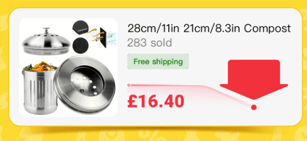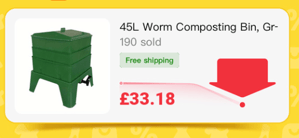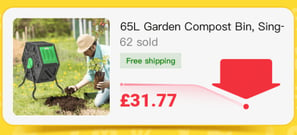
Composting in Small Spaces
A Guide for Urban Gardeners to composting in small spaces
ORGANIC GARDENINGSOIL CARE
A Guide for Urban Gardeners to Composting in Small Spaces
Composting in a small space might seem challenging, but with the right approach, even apartment dwellers can turn kitchen scraps into garden gold. Here's a practical guide to get you started with small-space composting.
Choose the Right Composting Method
Small-space gardeners have several excellent options:
Bokashi composting uses fermentation in an airtight bucket, perfect for countertops
Worm bins (vermicomposting) work well indoors and process scraps quickly
Compact tumbling composters fit on balconies and prevent pest issues
Trench composting directly in containers for those with small patios
What to Compost in Small Spaces
Be selective about what goes in your small composter:
Green materials: Fruit and vegetable scraps, coffee grounds, tea bags, fresh plant trimmings
Brown materials: Dry leaves, shredded paper, cardboard, small wood chips
Avoid: Meat, dairy, oils, pet waste, diseased plants (these can cause odors and attract pests)
Managing Odours and Pests
These are crucial considerations for indoor or balcony composting:
Maintain proper moisture (damp like a wrung-out sponge)
Keep a good green-to-brown ratio (roughly 1:3)
Turn or aerate your compost regularly
Add a thin layer of browns on top to create a natural filter
Harvesting and Using Your Compost
Small-space compost can be incredibly valuable:
Mix finished compost into potting soil for containers (about 25% compost)
Use as a thin top dressing for houseplants
Make compost tea by steeping compost in water for a nutrient-rich liquid fertilizer
Troubleshooting Common Issues
Wet, slimy compost: Add more browns and aerate
Dry, slow-decomposing pile: Add water and more greens
Fruit flies: Cover fresh scraps with browns or partially bury new additions
Even the smallest composting setup can process a surprising amount of kitchen waste while providing nutrients for your garden. Start small, experiment with different methods, and enjoy watching your food scraps transform into rich, fertile compost for your plants.






